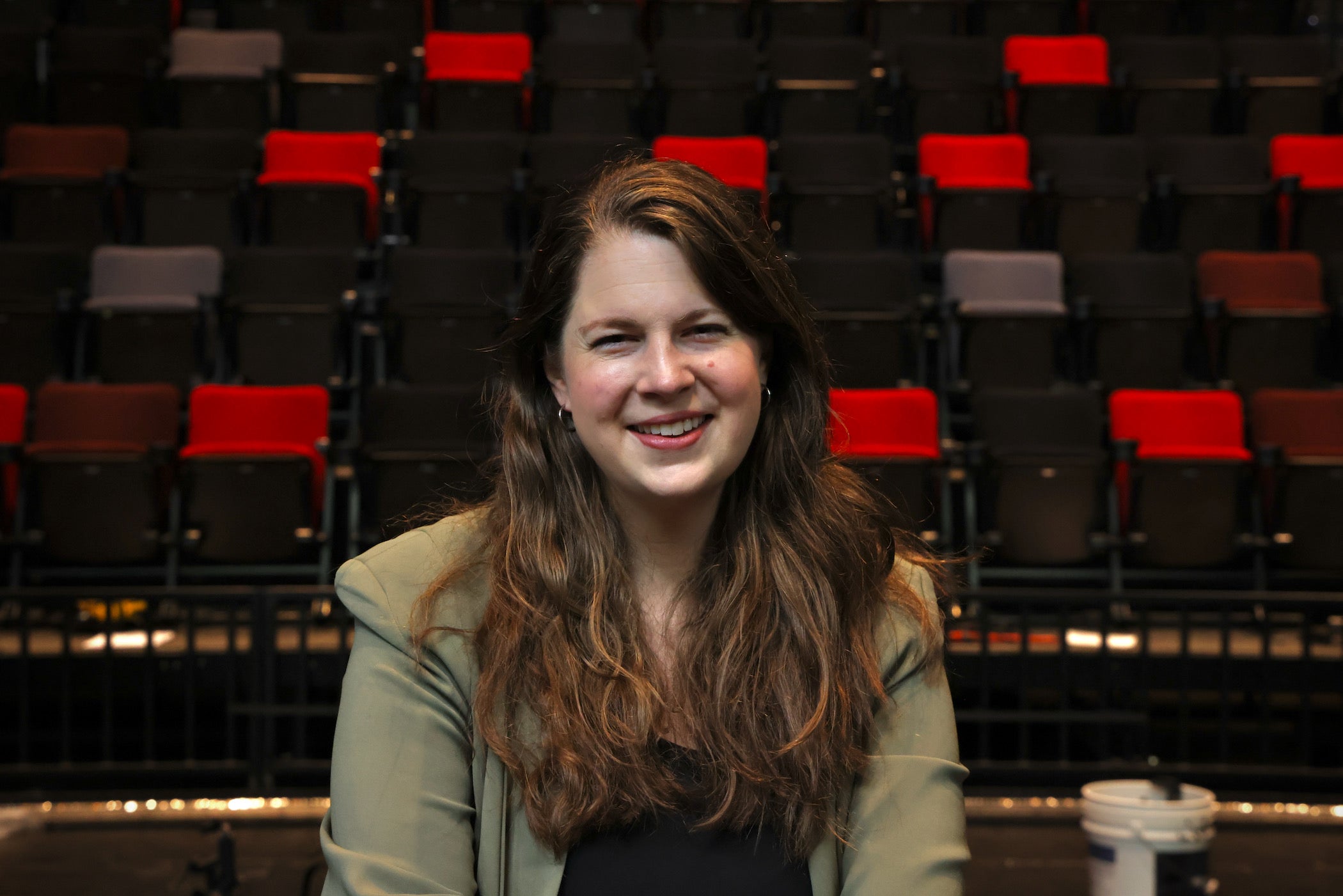The FringeArts search committee was not necessarily looking for someone from Philly to lead the Philly Fringe. But it worked out that way.
“Of the 75 applicants, she was one of the few from Philadelphia, and the only one of the semifinalists there was in Philadelphia,” said board chair Mark Dichter. “We were not thinking that you needed to be from Philadelphia to be hired. But she has both presented independent shows in our festival and she’s directing one of the curated shows this year. She has the breadth of experience.”
Bang-Jensen is looking to shift away from the FringeArts building, the $7 million converted pumphouse on the Delaware River Waterfront that opened in 2013. For theater to thrive, she said, it needs to be closer to home.
“Doing things in different neighborhoods that look a little less traditional than an audience sitting down and watching something, but maybe are asked to participate or experience, is a way of opening the doors figuratively and literally to people who wouldn’t necessarily come into this space,” she said.
This year’s Fringe is already experimenting with scattering headline shows around town. Festival staple Pig Iron Theatre is staging its premiere of “Poor Judge” at the Wilma Theater in Center City, and Bang-Jensen’s production of Lighting Rod Special’s “Nosejob” is running at Theatre Exile in South Philadelphia.
With the lingering pandemic slump, FringeArts was forced to scale down its festival last year, with no headlining artists brought in from out of town and many productions had smaller budgets. This year, the festival is presenting closer to its pre-pandemic level, and Dichter said Bang-Jensen is coming into a reasonably stable organization.
“It’s in a sustainable state, but we really want to grow the organization, grow it back to where it was,” he said. “That’s done by making the case to funders. The performing arts depends on funders. It’s not like Broadway, which depends on investors who are willing to lose money. There’s a long timeline to that.
“That’s what will enable us to grow and do things like bring theater throughout the city, which I think will broaden the basis for people supporting FringeArts,” he said. “It’s not just a Center City program.”

